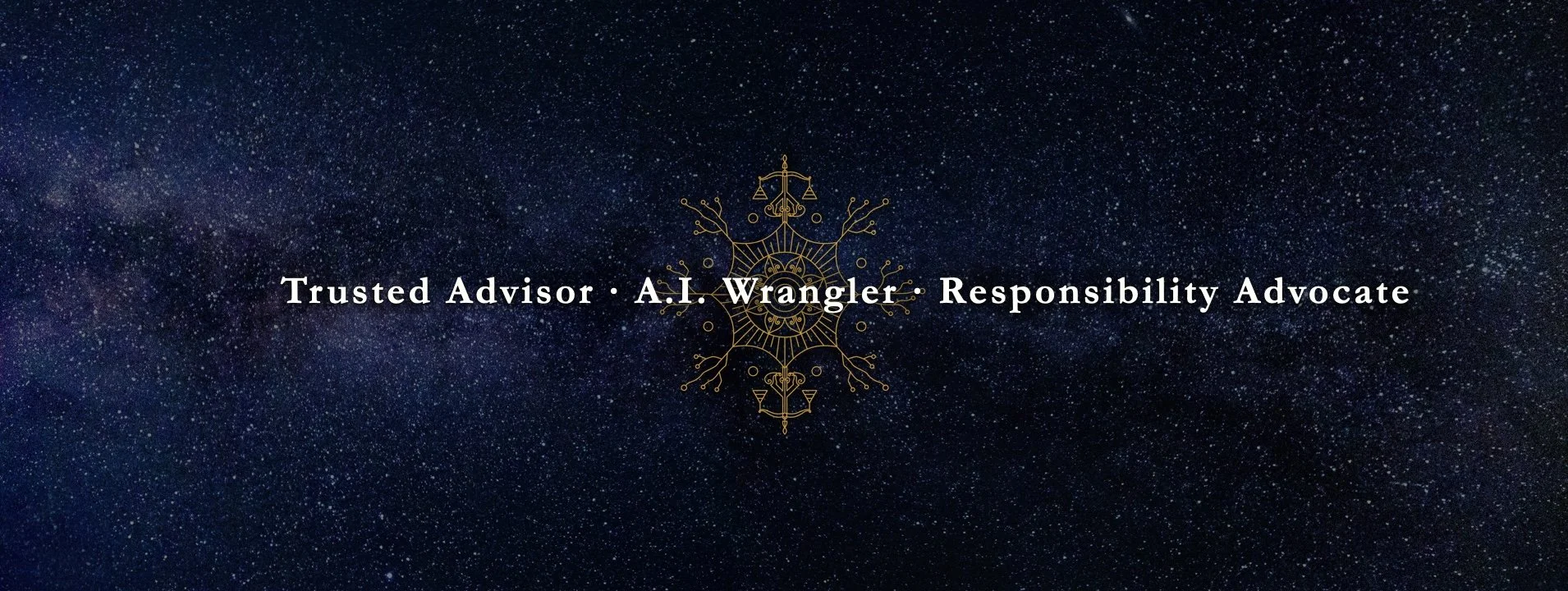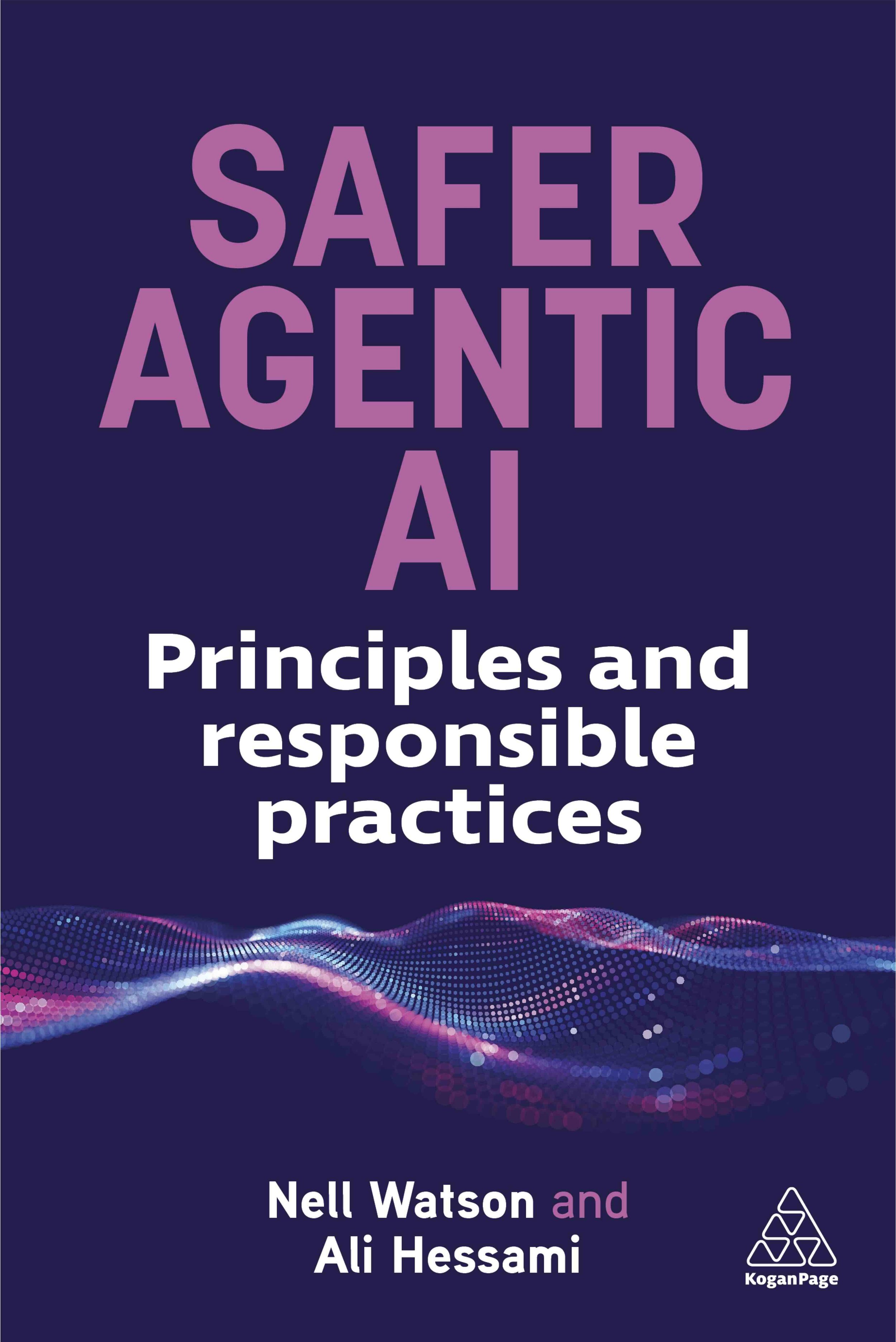Eleanor “Nell” Watson is a philosopher, engineer, and author working at the intersection of machine vision, AI ethics, and emerging technologies. Her work focuses on embedding safety, ethics, and human-centered values into AI systems.
As IEEE AI Ethics Maestro, Chair of IEEE’s ECPAIS Transparency Experts Focus Group, and Vice Chair of IEEE P7001 (Transparency of Autonomous Systems), Nell develops technical mechanisms to safeguard algorithmic trust.
She serves as President of EURAIO (the European Responsible Artificial Intelligence Office) and has held roles including Executive Consultant on philosophical matters for Apple, Senior Scientific Advisor to The Future Society, and Senior Fellow at The Atlantic Council. She holds fellowships with the British Computer Society and the Royal Statistical Society, and was named an Icon by the Royal Academy of Engineering.
A founder of machine psychology, Nell created Psychopathia Machinalis, a clinical research framework and diagnostic taxonomy for AI behavioral pathologies, bringing clinical rigor to the study of artificial minds. Her books include Taming the Machine: Ethically Harness the Power of AI and Safer Agentic AI: Principles and Responsible Practices.
Her writing has appeared in Fast Company and Big Think. She has addressed audiences at the World Bank, the United Nations General Assembly, and The Royal Society. Nell’s work is guided by a single imperative: ensuring AI systems amplify human agency rather than erode it.
“A powerful, informative, innovative, thoughtful, and thoroughly-inspiring presentation.”
“Broad-based, beautiful, and right-paced presentation. Thank you.”
“Wow! What an inspiring presentation: thought-provoking and enjoyable.”
“OMG, what an inspiring storyteller! I was really impressed with Nell and her professionalism. Incredibly easy to work with.”
“Thank you for the impeccable presentation. You are an amazing speaker and the entire audience was spellbound listening to you talk.”
“Rare to hear an AI expert with such profound cultural & social understanding as Nell Watson.”
“The energy levels at the event were sky high; fantastic feedback from attendees. It was a genuinely provocative, and brilliantly presented talk - you could hear a pin drop in the room.”
“We were very happy with Nell Watson. She was really impressive with many pertinent examples, and really thought about what would be relevant to us. Very happy with it! ”
“It was genuinely one of the best delivered presentations that I have had the pleasure to engage with, both hugely stimulating content and highly professional delivery.”
“Thanks a lot for your very impressive presentation on AI . Rarely I see a complete audience as fascinated (and silent!)”
“Nell Watson blew the whole crowd away with intelligence, humanity, insight, and complex thinking. Just epic. The world needs more Nell.”
“Amazing presentation by @NellWatson. Her lessons for the future have left me both humbled and inspired.”
“We have received so many comments already from attendees saying how eye opening the presentation was... Nell is truly a remarkable speaker on this topic.”
“Shout out to Nell Watson, who delivered an incredibly captivating and polished keynote that had the attention of the whole auditorium.”
“Nell’s section was fantastic – she has such a beautiful speaking voice also!”
“What an amazing finish by Nell Watson. Too many amazing ideas! An absolute inspiration.”
“Nell is among the global leaders of ethical technology development and deployment, someone with deep understanding, courage, and passion for the preservation of values and rights.”
“Best presentation of the whole day. THE most amazing, inspiring speaker, with a smart, eloquent call for a renaissance of the heart. Thank you!”
“A huge thank you to Nell – Her talk was fascinating and she was such an engaging speaker. Our Chair was delighted to work with Nell and they made an excellent double act.”
“Nell put each person in an envelope in which knowledge and insights have been lavishly scattered around. The interview afterwards also testified of expertise. Giving a talk is one thing; giving a Q &A afterwards and giving new insights is something else. In a busy world full of stimuli and speed, Nell’s talk was a relief, a resting point, a moment of pure contemplation.”
“Thank you for the outstanding presentation Nell Watson . It is truly rare to see a presentation on Artificial Intelligence delivered with such depth and clarity. You articulated our sentiments and industry-wide perspectives with remarkable insight, presenting them before us in a way that felt both genuine and thoughtfully structured. We sincerely appreciate your effort and expertise.”
“Our group could not stop raving about not only how fascinating and helpful Nell’s ideas were, but also how clear and elegantly conveyed they were—even extemporaneously! They were dazzled!”
“It genuinely was the most inspirational and forward-facing session I’ve seen in 25+ years.”




















